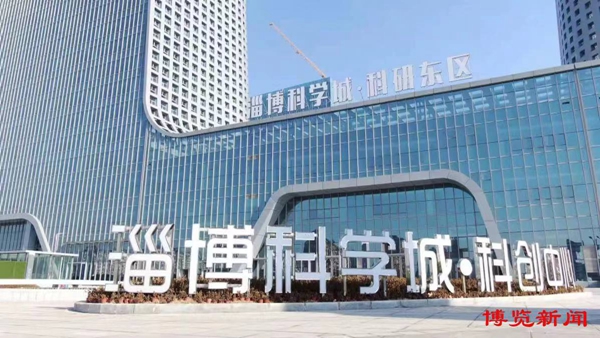

An exterior view of Zibo Science City. [Photo/zbnews.net]
The city of Zibo in East China's Shandong province is surging forward with its high-level innovation during the 14th Five-Year Plan period (2021-25) that includes becoming an authorized establishment of a national innovative city, creating the first provincial-level new material lab, and establishing deep university-enterprise cooperation in multiple industries.
Several companies from Zibo visited the Harbin Institute of Technology, or HIT, on June 11 to deepen university-enterprise cooperation in the intelligent equipment industry.
Ma Jun, a professor at the School of Environment of HIT, signed a cooperation agreement with Zibo Gretach Water Co Ltd to build a research institute branch in Zibo.
Zibo started university-enterprise cooperation projects in 2016.
The city has supported local universities to build 29 innovation platforms such as the Institute of Engineering Ceramics – one of the first six research institutes established by Zibo-based Shandong University of Technology.
It also cooperated with universities out of the city. A total of 137 well-known universities throughout the world including Tsinghua University have set up 241 research and development institutions with enterprises in Zibo.
The scientific research and innovation platforms have solved many problems in the transformation and upgrading of enterprises in Zibo and achieved high-quality development.
For example, the research and development of the fluoride fossil ink production line that has an annual output of 100 metric tons was developed by Shandong Zhongshan Photoelectric Materials Co Ltd and Ningbo Institute of Materials Technology & Engineering, which is affiliated with the Chinese Academy of Sciences, helped break through the bottleneck that plagued the enterprise for many years, and has continued to pursue the effective transformation of scientific and technological developments.
Zibo has offered support to 497 university-enterprise cooperation projects from 2016 to 2021.